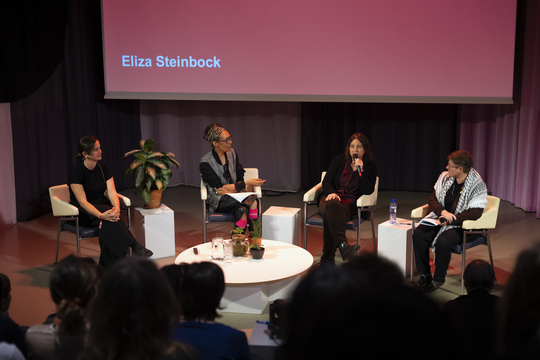The End of a Paradise
In tactical media circles the Amsterdam media landscape has long been treated as a Utopian model because of her free radios, open tv-channels and digital public spaces. The last few years this media paradise is under threat. How did this come about? And is it still possible to reverse this development? This is the theme of the Amsterdam Media Debate. Nina Meilof (The Digital City - DDS), Andreas Baader and Josephine (Radio Patapoe), Frank (Radio de Vrije Keyser) and media-activists Patrice Riemens, Geert Lovink and Menno Grootveld prepared the grounds for the discussion.
The aim of the Amsterdam Media Debate during The Next 5 Minutes is to explain to the international participants that big changes are underway here. They may perhaps learn something from our experiences, but we would also like to try and find out what the differences are with other big cities and with other countries. What are these big changes and how is the situation at the present moment?

